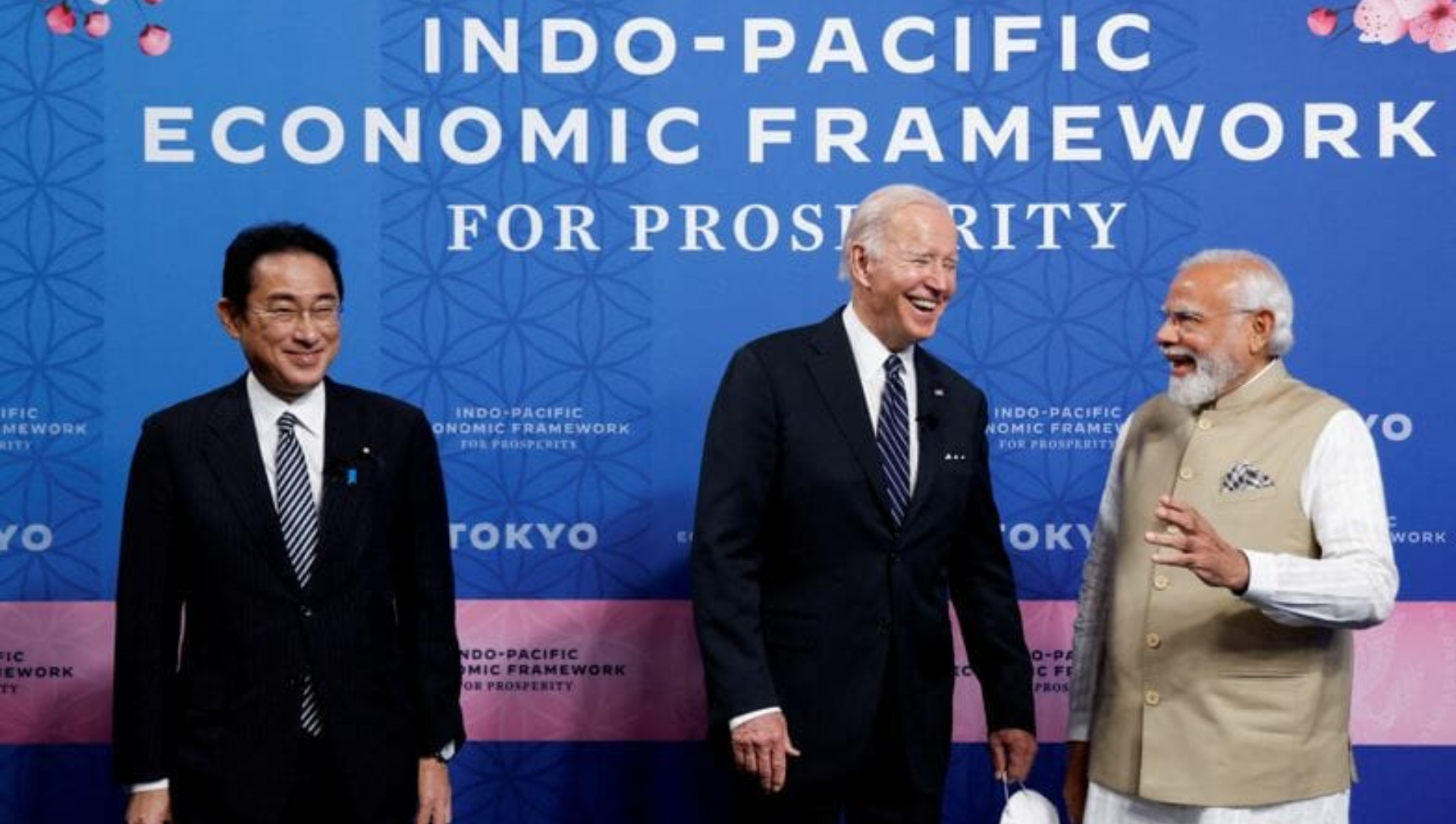NEW DELHI: India, which scaled back from the Regional Comprehensive Economic Partnership Agreement (RCEP) at the final stage of negotiation, has become a strong stakeholder of the USA-led Indo-Pacific Economic Framework for Prosperity (IPEF).
US President Joe Biden kicked off the IPEF along with the representatives of the twelve other nations of the Indo-Pacific region, Australia, Brunei, India, Indonesia, Japan, Republic of Korea, Malaysia, New Zealand, Philippines, Singapore, Thailand, and Vietnam on Monday.
Prime Minister Fumio Kishida of Japan, President Joseph Biden and Indian Prime Minister Narendra Modi attended in person, while cabinet-level representatives from 10 other countries joined in virtually.
The block IPEF will be effective in the issues and domains such as trade, supply chains, clean energy, decarbonization and infrastructure and tax and anti-corruption to contain China’s rapid and rampant march in the region. All together the member states of the newly formed IPEF make up about 40 per cent of the global GDP.
The US under President Donald Trump pulled out of the Trans-Pacific Partnership, the largest trading block in the region in 2017. President Biden’s initiative to counter China’s influence has elicited a positive response from a dozen nations in the Indo-Pacific. Ahead of the launch of IPEF, in a statement, the White House said, “In order to prepare our economies for the future, we are launching the process to establish the Indo-Pacific Economic Framework for Prosperity.”
Speaking to The New Indian from the launching ground in Tokyo in Japan, acclaimed geopolitical and strategic affairs expert Dr Satoru Nagao said, “Economically, Indo-Pacific Economic Framework (IPEF) is most important. This IPEF could be the most important counter China policy. China’s source of power is money. Because China has an ample budget, China can modernize their military at a rapid pace. Because of their budget, China can invest in infrastructure projects with high interest rates and create huge debt to control recipients. Because countries depend on China’s market, the situation makes China arrogant. Thus, creating a new market that does not depend on China is needed.”
Irrespective of the fact that IPEF is born from an economic agenda, this block will serve security concerns, especially threats from China, argues Vivek Mishra, a Fulbright Scholar.
Speaking to The New Indian, Mishra said, “Indo-Pacific Economic Framework is a mechanism that the Biden-led US government is leading. It brings together 13 nations on the issue of economics. They are trying to create an alternative mechanism within the Indo-Pacific umbrella. The Indo-Pacific umbrella is expanding every day. IPEF’s economic efforts will be backed by digitization and cyber security etc. This will in turn impact security issues, it will secure supply chains and digitised domains. It will smoothen how trade flows from one country to the other.”
“Specifically, if you look at the structure and composition of IPEF, ASEAN countries are there. ASEAN countries are an economic union. IPEF is an effort toward creating an alternative mechanism to the Belt and Road Initiative. Participation of ASEAN countries is hence really important there,” he said.
“It has only an economic perspective right now but in the long run, I think, they are looking at IPEF as a strong foundation for punching out security concerns in the Indo-Pacific,” Mishra further said.
“IPEF covers 40% of GDP in the world but it doesn’t include China. IPEF has the potential to counter China’s market. This is important both strategically and economically,” Dr Nago said.
“India is in an interesting position. India did not join TPP or RCEP but India has joined the IPEF bloc. This is the first time to include the huge market of India. Thus, this IPEF proved that QUAD is working,” Dr Nagao, Tokyo based non-resident fellow at Washington DC-based think-tank Hudson Institute, added.

